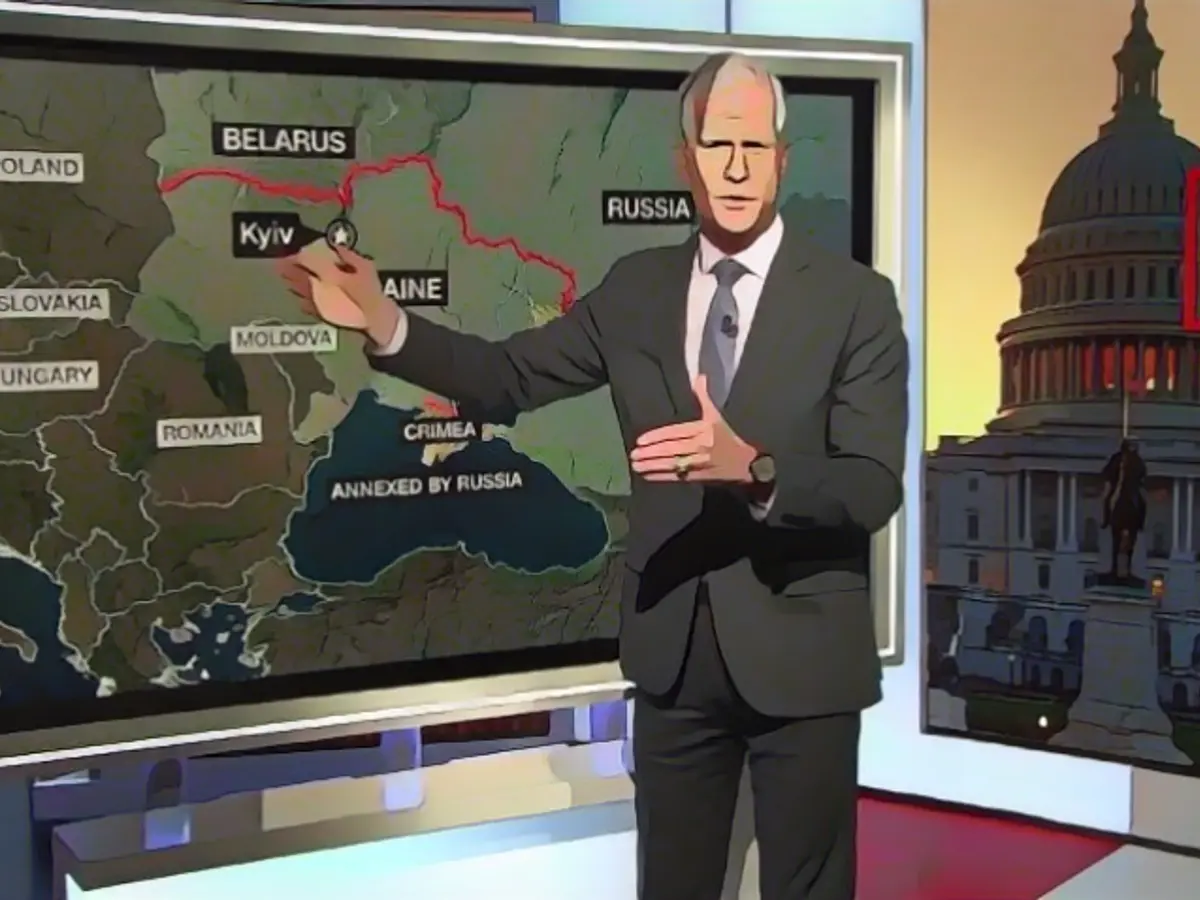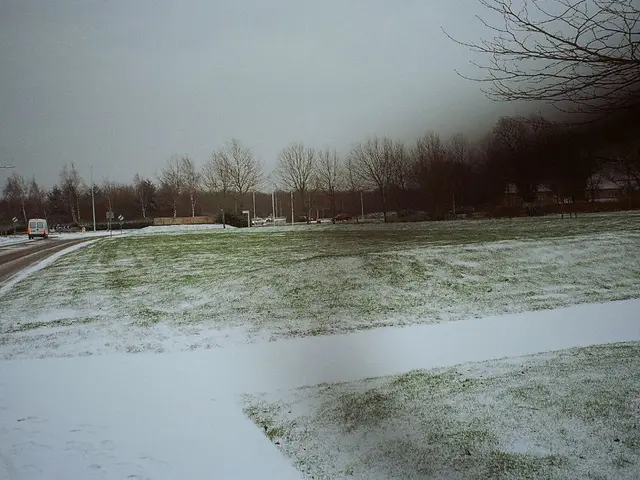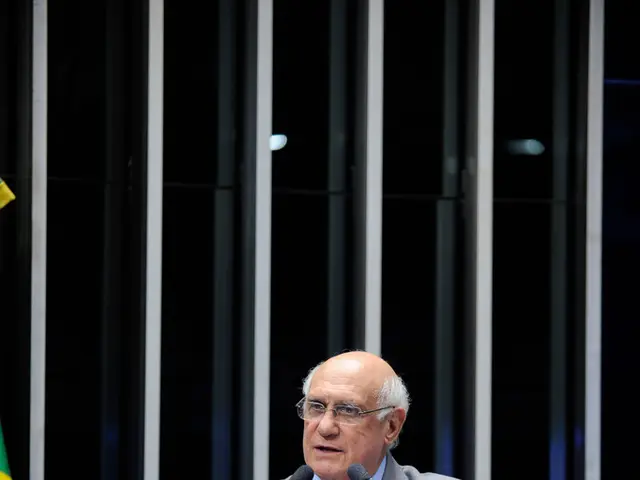When tomorrow or the day after, a war breaks out, it's likely due to Russian President Putin believing that Kyiv won't bear high human losses if it invades Ukraine militarily. U.S. President Joe Biden and several European leaders have publicly warned Putin that a war would be costly: Diplomatic isolation and financial sanctions were on the table, but neither seemed capable of deterring Putin from the brink of conflict. Potentially high military costs (Russian losses on the battlefield) remain the only compelling reason to deter Putin from another invasion in Ukraine.
Regarding this aspect, the Ukrainian military is in a stronger position than many think. Although it's unlikely that Ukrainian forces can prevent a wide-scale attack, they are still professional and experienced enough to slow down the advance and, more importantly, inflict thousands of casualties on Russia.
Now, western politics come into play. The provision of anti-tank weapons and portable surface-to-air missile systems like Stinger is likely to have made the Russian General Staff reconsider their strategy. The Russians are already aware of how powerful these systems can be. Some credit the Stinger for turning the tide during the Soviet Union's Afghanistan war. However, less known is that Ukrainian-Soviet Buk air defense systems and portable systems to counter Russian aerial forces were used during the 2008 Russian invasion of Georgia with reported success in downing aircraft[1].
Fast forward to 2022, the Ukrainian military now has better American equipment and is more experienced in countering Russian tactics. According to the GlobalFirepower Ranking, Ukraine currently ranks 22nd globally, while Russia is in second place. Despite the rhetoric, this is not a David versus Goliath scenario; the "Blue and Yellow" won't be scoring a few points here. And while considering the conflict through this traditional lens, the true reality on the battlefield may be lost.
Kiev's strategy seems to revolve around retreating and resisting the uprising like the Taliban against U.S. and NATO forces in Afghanistan. It's known that Ukrainian civil defense forces are trained to resist occupation forces. A friendly journalist living on the outskirts of the capital reported hearing of weekly weapons training. "He was cleaning his pistol himself while waiting for the climate control technician."
The point is, if Russia suffered losses against a similar poorly-prepared and poorly-positioned Ukrainian amateur force in 2014, the losses in this game might have been even higher. The question is, will this have enough effect to deter the Russian President?
Many Americans view Putin as an authoritarian leader. However, this is an inaccurate perception. He forged a powerful alliance with the country's wealthiest oligarchs and governed with the tacit support of a public that was attracted to both the increased living standards resulting from oil revenues and the earlier press freedom. Corruption fosters a deliberate indifference. Dissent is brutally suppressed.
However, Russia is not North Korea. Dissent has yet to fully subside. Demonstrations still take place, and while regime critic Alexei Navalny was arrested, he managed to spread an anti-corruption message.
Because of this, Putin may be worried about the return of body bags. During the first Russian invasion, "Soldier Mothers" and other humanitarian organizations exposed the "Little Green Men" lie, claiming that Russian troops were not involved in the battles in Donbass. Such groups were subsequently systematically silenced, but they managed to reveal the truth about the conflict: Russian men were dying on Ukrainian soil.
This is not a popular war in Russian public opinion. For Westerners, it's essential to understand that the Ukrainians in Russia constitute a significant minority. Millions of Putin's citizens have friends or relatives who watch the progress of Russian weapons.
Conducting opinion polls in such a large country can be challenging, but the Levada Center, an independent polling organization based in Russia, is one of the few organizations providing reliable data on Russia, according to Western analysts and journalists[1]. Levada Center data shows a relative strong support for more conflicts in Ukraine. A survey conducted in April revealed that a full 41% of military personnel (18-24) believed that a war with Ukraine would harm Putin's image. A third of young parents aged 25-39 agreed, with nearly the same percentage in the middle-age group.
In the past, Putin has argued that Russia is not even its own country and that this part of the population would bear the brunt of a large number of casualties if a significant number of soldiers returned home. Will young people and their parents understand the consequences of the conflict as Putin sees them?
Source:
**Enrichment Data:**
Ukraine's ability to inflict significant casualties on Russian forces could have several deterrent effects on a potential future invasion by Russia:
- Psychological Impact: High casualties among Russian troops could significantly lower morale and create a sense of unease among soldiers, potentially leading to decreased willingness to engage in combat. This psychological impact could undermine the Russian military's ability to maintain a cohesive and effective fighting force[4].
- Strategic Deterrence: The high cost of casualties could deter Russia from launching a full-scale invasion by making the military operation more expensive in terms of lives lost and resources expended. This could lead Russia to reconsider its military strategy and seek alternative solutions to achieve its objectives[3].
- International Pressure: The international community, particularly Western nations, might be more inclined to support Ukraine with military aid and economic sanctions if they perceive that Ukraine is capable of inflicting significant damage on Russian forces. This international pressure could further deter Russia from invading Ukraine[4].
- Operational Disruption: Ukraine's ability to inflict casualties could disrupt Russian operational planning and logistics. Continuous losses could force Russia to reorganize its military units, which might delay or complicate future invasions[2].
- Political Consequences: High casualty rates could lead to significant political fallout within Russia, potentially affecting the popularity of the current leadership and their policies. This could create internal pressure on the Russian government to reconsider its military actions in Ukraine[1].
- Technological and Tactical Advantages: Ukraine's ability to integrate technological adaptations with ground maneuver, such as electronic warfare, has been a significant factor in inflicting casualties on Russian forces. This capability could continue to complicate Russian operations and make future invasions more challenging[2].
In summary, Ukraine's ability to inflict significant casualties on Russian forces serves as a multifaceted deterrent, affecting both the psychological and strategic aspects of Russian military operations, as well as the international and political dynamics surrounding the conflict.







